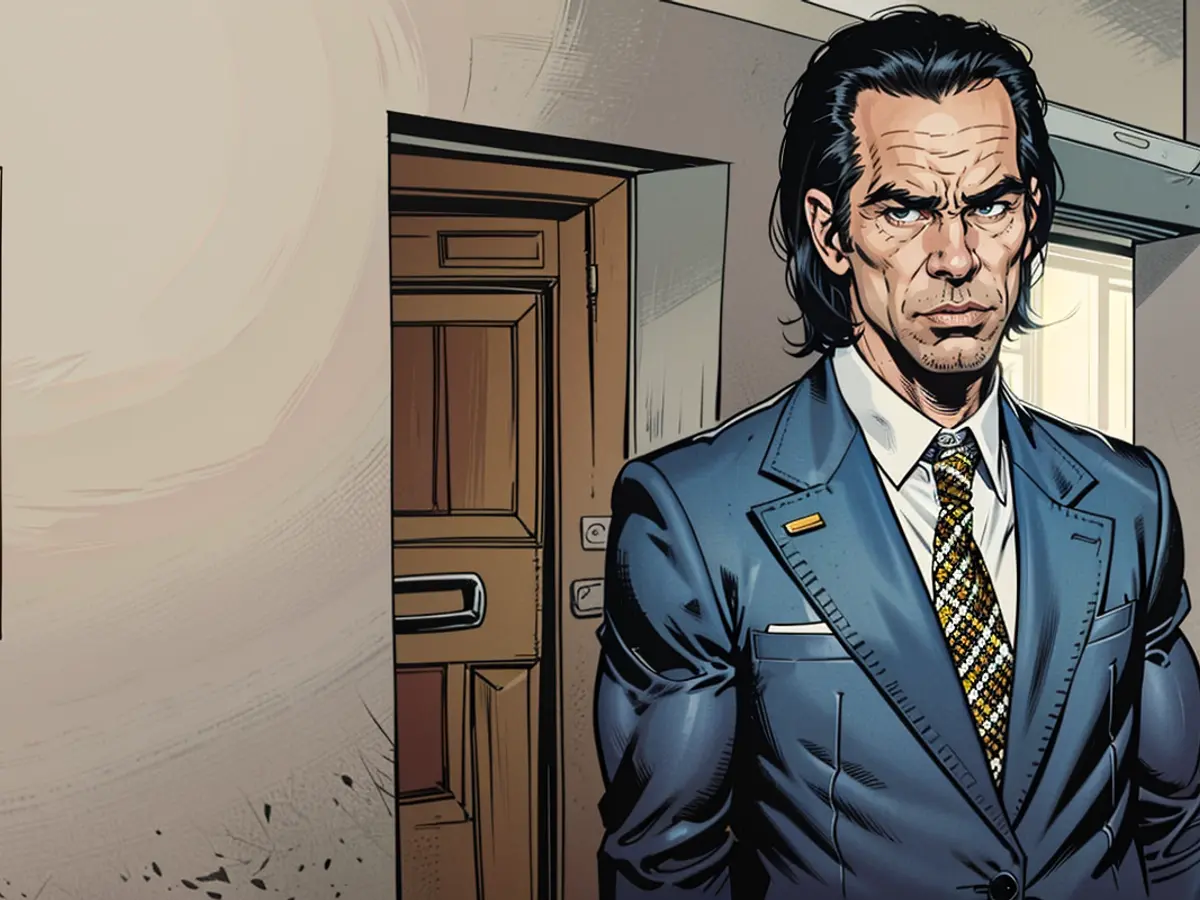Nick Cave embarking on a divine endeavor
"On their new album 'Wild God', Nick Cave and the Bad Seeds let their emotional leashes go loose. Anything that feels good is fair game. And as the tension builds steadily, an awful lot feels incredibly good."
"Perhaps a stormy night is coming," sings Nick Cave, as a haunting melody on the piano weaves its way through the shadows. Nick Cave has gone through a lot in the past. In 2015, his 15-year-old son Arthur passed away. Seven years later, Arthur's half-brother Jethro also left this world.
The darkness has always been a constant in Nick Cave's artistic life. Lately, it's also been a dominant force in his personal life. Who can provide comfort in such a time? Art? Silence? Maybe God?
Five years after the last album by Nick Cave and the Bad Seeds ("Ghosteen"), the Divine seems to be rowing with all its might on the album cover. "Wild God", the title of their eighteenth studio output, is definitely not a mourning album. In terms of content, the lead character tackles life and all its incredible facets. Love, pain, hope, despair: "Wild God" has it all and leaves it up to the listener to twist it together.
How's the frog in the gutter doing?
Life goes on somehow. Death is not the end, not even for those left behind. The joy of life and the constant drive to look forward play just as big a role under the influence of the wild god as the exhausting and debilitating struggle with darkness. For example, if a frog is sitting in the gutter, it's not just about despair, but also about always jumping forward and never giving up hope ("Frogs"). The death of Cave's close partner Anita Lane is processed with bubbling melodies, vocoder tricks, and a phone recording in which Lane reminisces, laughing ("O Wow O Wow"). Death and grief can also mix with underlying joy.
With the return to rock 'n' roll, Nick Cave is said to have closed that chapter for now. "Wild Dog" breaks away from traditional verse-bridge-chorus patterns and instead paints a soundscape of intensity. It's about free thinking, experimental music, gripping dynamics, and a return to the basics.
Despite many ups and downs, chaos is avoided. From the pain-distorted pathos of the opening ("Song Of The Lake") to the life-affirming pulsating beat of the sugary "Cinnamon Horses" to the final intricate fireworks ("O Wow O Wow"), Nick Cave and the Bad Seeds wallow in emotions.
Grief comes and goes
Louder, softer, with opulent choirs and bombastic orchestral interludes, and then again surrounded by delicate piano sounds, gentle spheres, and with both feet on the brakes, the responsible parties emerge from the darkness into the light, just on the edge of the chamber music Olympus.
Grief is still there, but somehow also gone. When the last note of the album fades into the distance, one is left with a sense of positivity in front of the speakers. One is filled with anticipation and eager for what's to come, if one allows oneself a second listen after the first.
Rock music plays a significant role in the "Wild God" album, with Nick Cave and the Bad Seeds returning to their roots in rock 'n' roll. The album's upbeat and intense tracks, like "Cinnamon Horses," show that even amidst grief and darkness, the joy of life and the drive to look forward are a crucial part of the human experience, much like a frog jumping forward in the face of adversity.








